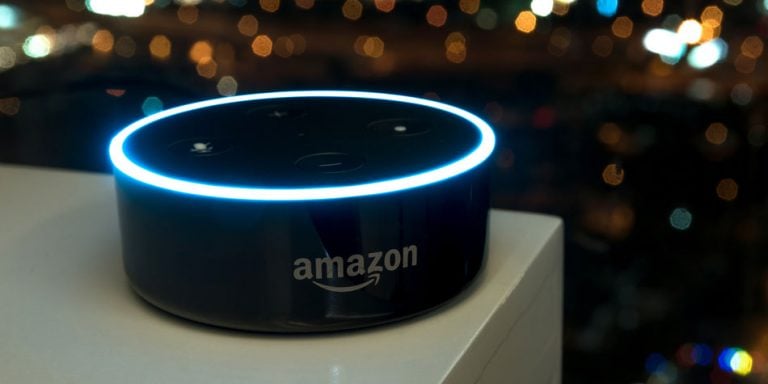I’ve not been shy about calling out Amazon.com, Inc. (NASDAQ:AMZN) in the past when it makes dumb moves. Conversely, I never said AMZN stock didn’t benefit from some of the relatively smart, savvy decisions CEO Jeff Bezos has made. For example, I still think the ides of aerial delivery drones is ridiculous. But the proliferation of Amazon-branded bookstores is a beautiful melding of online and offline retailing.
The latest maneuver from Amazon is one I have to place in the “fail” pile. But not because it won’t work (and for very little additional cost or effort). Rather, it won’t work because it’s low-brow, less-than-elegant idea.
Add an Amazon Kindle to Your Grocery List
If you’re a regular shopper at Whole Foods Markets, which Amazon acquired back in August, you may have seen new product pop up in its stores. You can now purchase the Amazon Echo, Echo Dot, Fire TV, Kindle e-readers, Fire tablets, and other Amazon goodies at the same place you buy your feta cheese and avocados.
Makes sense. Amazon makes and sells those devices, and it owns Whole Foods. Why not use the opportunity to sell such merchandise when it has a place to do so?
Gotta be honest though. This is the least creative, most disappointing and painfully-obvious use Amazon could have made of its newly-acquired grocery stores. And it should bug AMZN stock holders.
Don’t misread the message. Although I can recall a time when Amazon only sold books and CDs, I’m well aware that the average under-30 consumer doesn’t see anything unusual about buying their groceries from the same company they buy their electronics from, and the same company they tap to for streaming video. The internet blurred those distinguishing lines.
AMZN Stock’s Jump-the-Shark Moment?
Still, there’s something incongruent about putting an Amazon Echo in your shopping cart with a bag of Russet potatoes.
Perhaps chief among my concerns is that store staff may not be able to answer questions about the company’s own electronics lineup. Most of them are experts on groceries, not on Amazon’s consumer technologies. Though the pop-up shops that will be hawking Echos and Kindles are supplied by Amazon and will presumably have a modicum of familiarity with these devices, it’s not clear the company has this kind of veteran staffing at its disposal. It’s a recipe for a bad experience with a company that prides itself on providing good experiences.
A close-second concern this would raise, were I currently an owner of AMZN stock. This just looks weird, and a little desperate.
AMZN Stock Could Benefit From Bookstores
Don’t get me wrong. I love the idea of Amazon’s dedicated bookstores, as their key intent is to sell electronics rather than books. Those permanent bookstores, however, are seen as a destination and even an entertainment venue. Grocery stores primarily serve a utilitarian purpose. These disparate mindframes set the stage for how receptive a consumer is to learning about Amazon’s newest wares.
To be clear, I had no problem with Amazon getting into the grocery business. But I appreciated the idea that Amazon wasn’t exactly interested in turning its Whole Foods Market stores into a profit center in and of themselves. I thought the purpose was to establish a new means of gathering a massive amount of customer data that could ultimately fuel its online grocery business. And that would bring more people into the Amazon circle.
Now it’s clear the company had something else in mind as well — something that could ding the aura of coolness that’s kept Amazon stock on a pedestal for such a long, long time.
Looking Ahead for AMZN Stock
I’m not suggesting Amazon is lost, or that AMZN stock price is headed towards zero. I don’t see that at all. The pop-up shops appearing in Whole Foods stores this month will be a fading memory by February. It’s not even close to the end of the world.
The decision does, however, underscore something I cautioned AMZN stock owners about in September even as I was praising the idea of building more bookstores. Every business Amazon gets into translates into added expense and distraction from its core competency, which is e-commerce.
The introduction of temporary electronics shops in its still-unfamiliar Whole Foods grocery stores indirectly points in that direction. This suggests Amazon doesn’t know how to fit all the pieces of its puzzle together in a way that boosts revenue without denting its image. If this is only just the beginning of the company’s willingness to throw spaghetti on the wall to see what — if any of it — sticks, one has to wonder if investors will see Amazon as a haphazard mess that no longer justifies its ridiculous valuation.
Just something to think about.
As of this writing, James Brumley did not hold a position in any of the aforementioned securities. You can follow him on Twitter.

